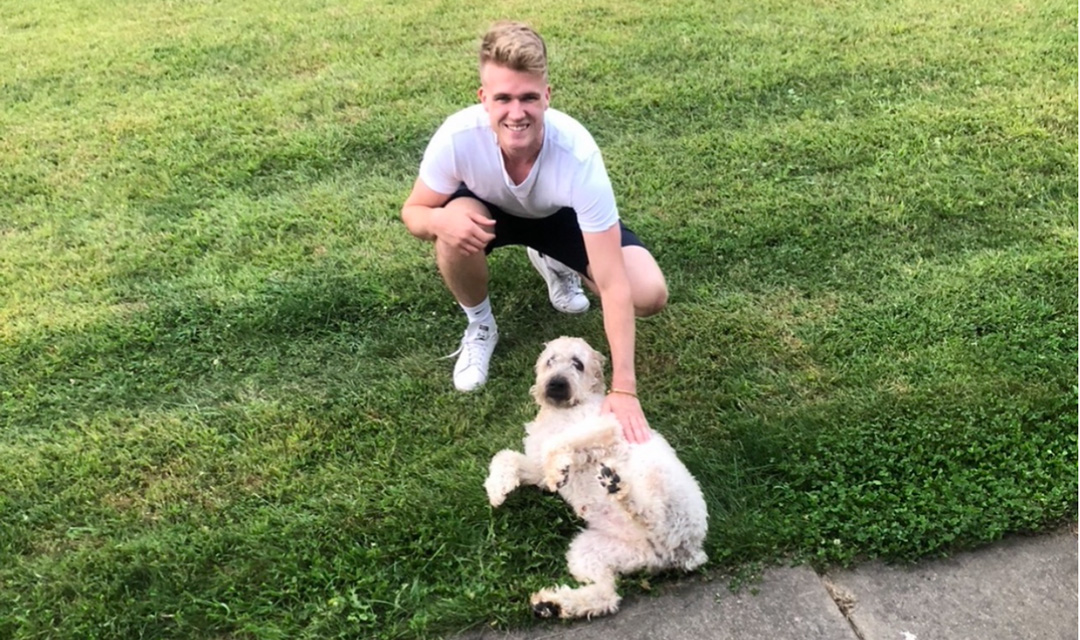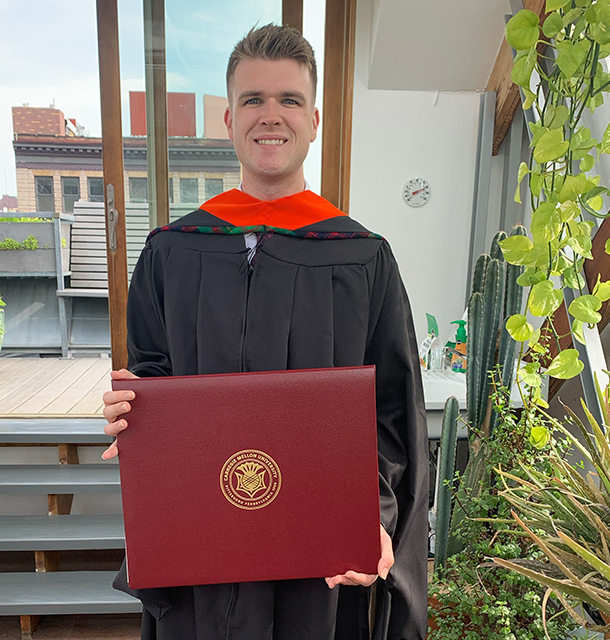Alum spotlight: Dennis Loevlie
Giordana Verrengia
Jul 10, 2024

Source: Dennis Loevlie
After completing his bachelor's degree in chemical engineering at West Virginia University, Dennis Loevlie's goal was to prepare for a career in research. His next move to make that happen was to enroll in Carnegie Mellon's master of science in chemical engineering program, which he was drawn to for its emphasis on computational research.
"I'm somebody who loves theory but also needs to see the applications and real-world impact of my work," says Loevlie ('21). "Striking that balance can be challenging."
During his first semester at CMU, Loevlie took John Kitchin's course, Mathematical Modeling of Chemical Engineering Processes, where he learned the ins and outs of the Python programming language. Loevlie soon joined the Kitchin Research Group, which specializes in finding chemical engineering solutions with data science and machine learning (ML) tools.
One of the main projects that Loevlie worked on involved hydrogen evolution reaction (HER) experiments. He built image analysis tools to measure how much hydrogen was produced during an experiment. He also trained an ML model to quantify the amount of precipitate formed during the reaction using images of the bottoms of wells. A problem was that the model would incorrectly identify shadows and other visual changes as precipitation. However, Loevlie was able to remediate using skills from his electives.
In addition to gaining master's-level research experience, he also learned a lot from Kitchin, whom Loevlie describes as a mentor, role model, and lifelong learner. Kitchin would often ask two main questions about engineering projects: Is this the right problem to solve? If so, is this method the right way to solve the problem? Loevlie says this troubleshooting approach helps prevent him from getting too caught up in the technical aspects of an issue without considering the bigger picture.
Loevlie practices this mindfulness as a computer vision engineer at KEF Robotics, a Pittsburgh-based startup that works to advance autonomous flight for aircraft. Within seven months of joining the company, Loevlie was promoted from a purely technical role to a project manager position. Most recently, he was named senior computer vision engineer.
I think leading a project in industry compared to in academia has some key differences, but stepping back and considering your priorities still applies.
Dennis Loevlie, Senior Computer Vision Engineer, KEF Robotics
"I think leading a project in industry compared to in academia has some key differences, but stepping back and considering your priorities still applies professionally," says Loevlie. "I've learned a lot really quickly. It's a small company, so you get a lot of ownership over your work."
Autonomous flight faces unique challenges. Unlike autonomous vehicles, aerial devices must account for power lines, which are so thin they're not easy to identify, even with cameras. In one of his most notable career achievements so far, Loevlie built an ML model to label power lines for use on a project for drones tethered to ground vehicles. This method, which uses images, achieved a level of accuracy many at the company thought was impossible, and introduced a new way for KEF to label its data.

Source: Dennis Loevlie
Loevlie's work as a graduate student researcher and professional have seen him toe the line between engineering and computer science, often applying concepts from both areas in a complementary fashion. It's no surprise that his advice to chemical engineering students is to take advantage of CMU's status as a top machine learning institution and supplement their main curriculum with courses in computer science.
"You don't get that opportunity very often, and CMU has some of the best professors in the discipline," Loevlie says. He is interested in furthering his own working knowledge and would like to pursue a Ph.D. program in computer science in the future.
